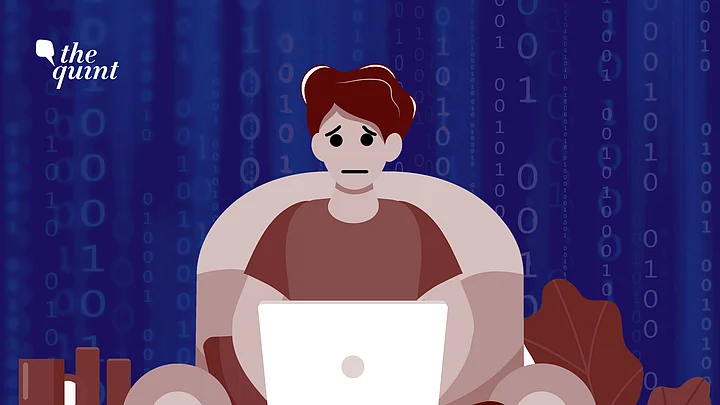Given the sudden spotlight and commotion around coding in the last few months, you may wonder if coding is the ticket that assures your child doesn’t fall behind in the automated economy. You may be also forgiven for asking if it’s just a fad that’s being capitalised by education businesses.
This isn’t surprising considering all the pseudoscientific claims and tall promises that are being peddled right now.
Children are like startups and parents, their angel investors. As responsible angel investors, parents try their best to help their fledgling child-startup grow into a mature, self-sustaining company.
But like any angel investor, they live in a world of uncertainty. Who knows what the world needs 15-20 years from now? As an educator, I want to touch upon what’s really needed for children of the 21st century and also help you understand this much talked about space of ‘coding for kids’ so that you know what evidence of learning to look for and are able to measure for yourself, whether your child is actually making progress or just wasting time engaging in pseudo-learning.
Can Coding Teach Children ‘How to Learn?’
Children are going to enter a world that’s very different from ours and much of what they learn in schools today will be irrelevant for the jobs of the 21st century.
As famous historian and philosopher Yuval Noah Hahari describes, they are going to be ‘Learning Nomads’. They have to be trained to become lifelong learners to be able to thrive in a world of rapid transformations and radical uncertainties.
This was a luxury back in our times but is a necessity for the times that your children will be exposed to.
The first step to this is to teach them how to learn. This includes developing the essential mindsets and skills such as grit, curiosity, growth mindset, communication, collaboration, critical thinking and creativity.
The best way to teach these key mindsets and skills is by coupling them with the core academic subjects. Now this brings us to the most important question – ‘Is coding and computer science one of these core subjects’? And the answer is yes.
While the field of computer science and computer programming (AKA Coding) have existed for decades, the last few years have seen rapid advancements, especially in the space of Machine Learning and Artificial Intelligence, that have the potential to redesign our way of life and our identity as humans.
Even India’s NEP has mandated teaching coding to kids from middle school. So, one thing is certain, coding isn’t a fad. It is essential to make your child future-ready and is as important as any other core academic subject such as Math or English.
This makes it extremely important for young children to develop computer literacy so that they can interpret and interact with the new technology-led world of tomorrow.
Focus on Computational Thinking Skills, Not Language
Once parents realise this, a common question I get asked is: “What coding language should I start with for my child?”
Before we answer this, let’s touch upon history a little bit. Right from 1949, since assembly language was created, we have had at least 10 new languages every decade, some of the notable ones being, C,C++, COBOL, Python and JavaScript.
The reality is that computer languages will keep evolving. So the truth is, the trending computer languages of today might not even be relevant when your child completes his/her formal education.
What’s more important is teaching your child computational thinking skills such as decomposition, pattern recognition, abstraction, and algorithms that will apply across all the languages than just a language that’s popular today.
When there is a lot of noise, a common temptation is to quickly dive into an easily available solution. In this case, it’s parents enrolling their kids in coding crash courses and intense boot camps that promise the moon.
Your child might experience a false sense of victory when he/she builds an app in a day, or is able to vaguely use jargon like AI or ML, however, does that mean your child has actually understood the concepts?
Mere crash courses and bootcamps will not help in meeting the core learning objective of developing computational thinking.
What’s to be kept in mind is that the learning curve for computer science should be as spread out as for other subjects like science and math.
Don’t Fall for ‘Superficial Coding’
I would like to conclude with one of the most important and yet undervalued aspects of education today. Measuring real evidence for learning versus mere engagement. Simply put, how do you know if your child is actually learning?
While there are more rigorous methods educators use, as a parent, here is some evidence you can look for when it comes to coding.
- Is your child able to explain the reasoning around these design decisions in simple words?
- Are the mental models they are developing through coding spilling over into other subjects, other areas of life?
Now, these achievements are not possible if coding is rushed at a superficial level with a weak curriculum. All that will achieve is create a generation of obedient executors who have been made to memorise and recite many coding recipes without understanding, just like their previous generation was made to memorise Math formulas.
Since not all schools have a cutting edge coding curriculum yet, you need to invest time in researching for solutions outside.
And if you are doing that, you need to check for providers that invest heavily in the rigour of their curriculum, pedagogy, and content. Only if these areas are taken care of, coding can be taught with the respect it truly deserves.
(Aanand Srinivas is the Founder & CEO of StayQrious. This is an opinion piece and the views expressed above are the author’s own. The Quint neither endorses nor is responsible for them.)
(At The Quint, we question everything. Play an active role in shaping our journalism by becoming a member today.)
